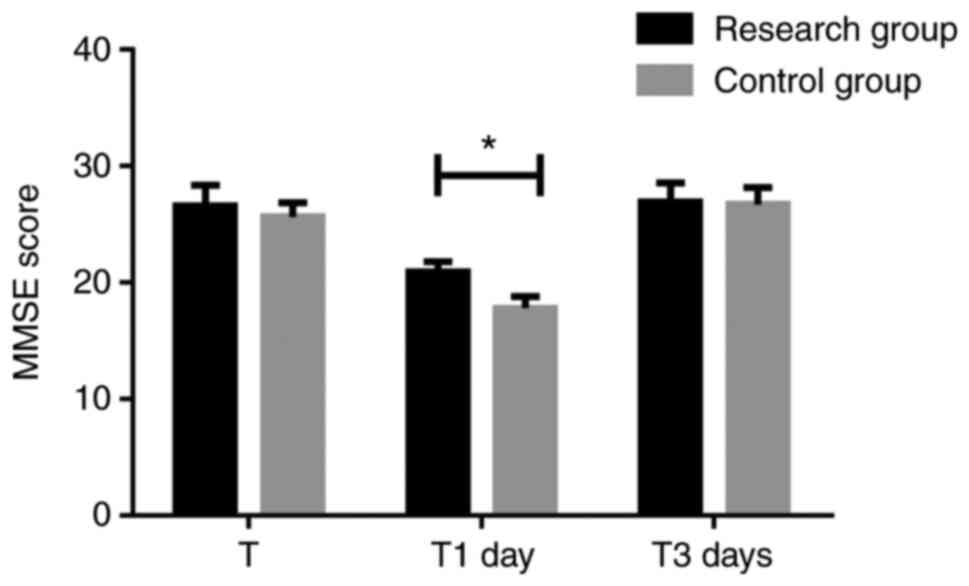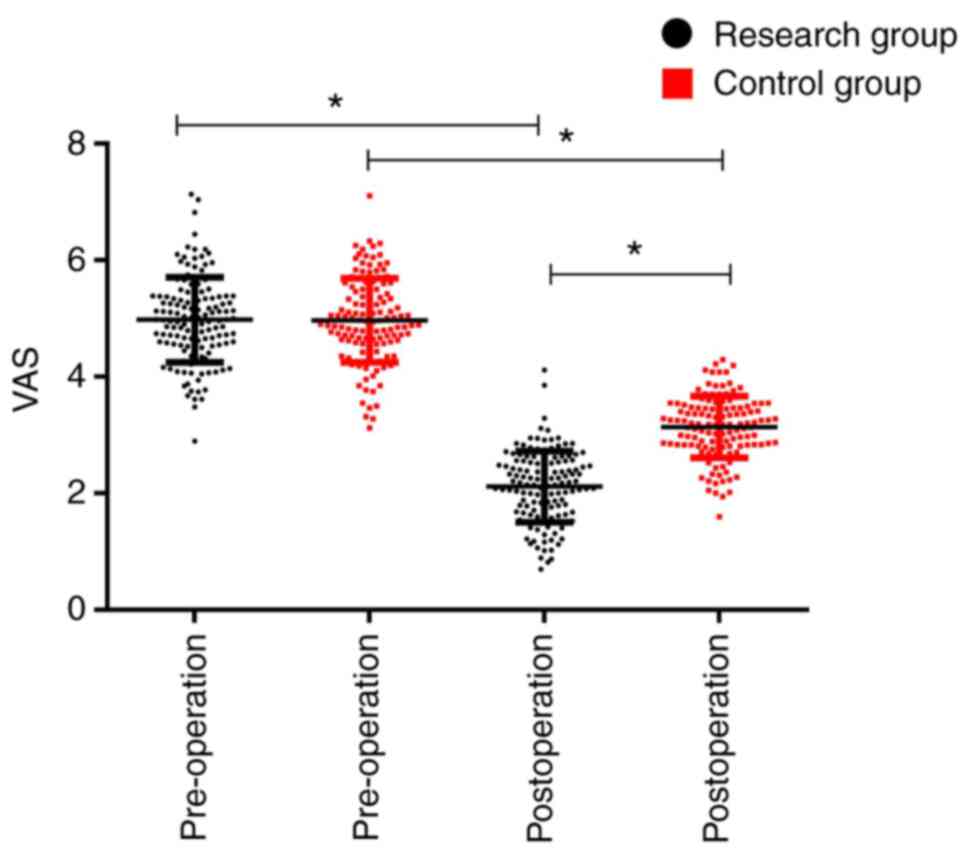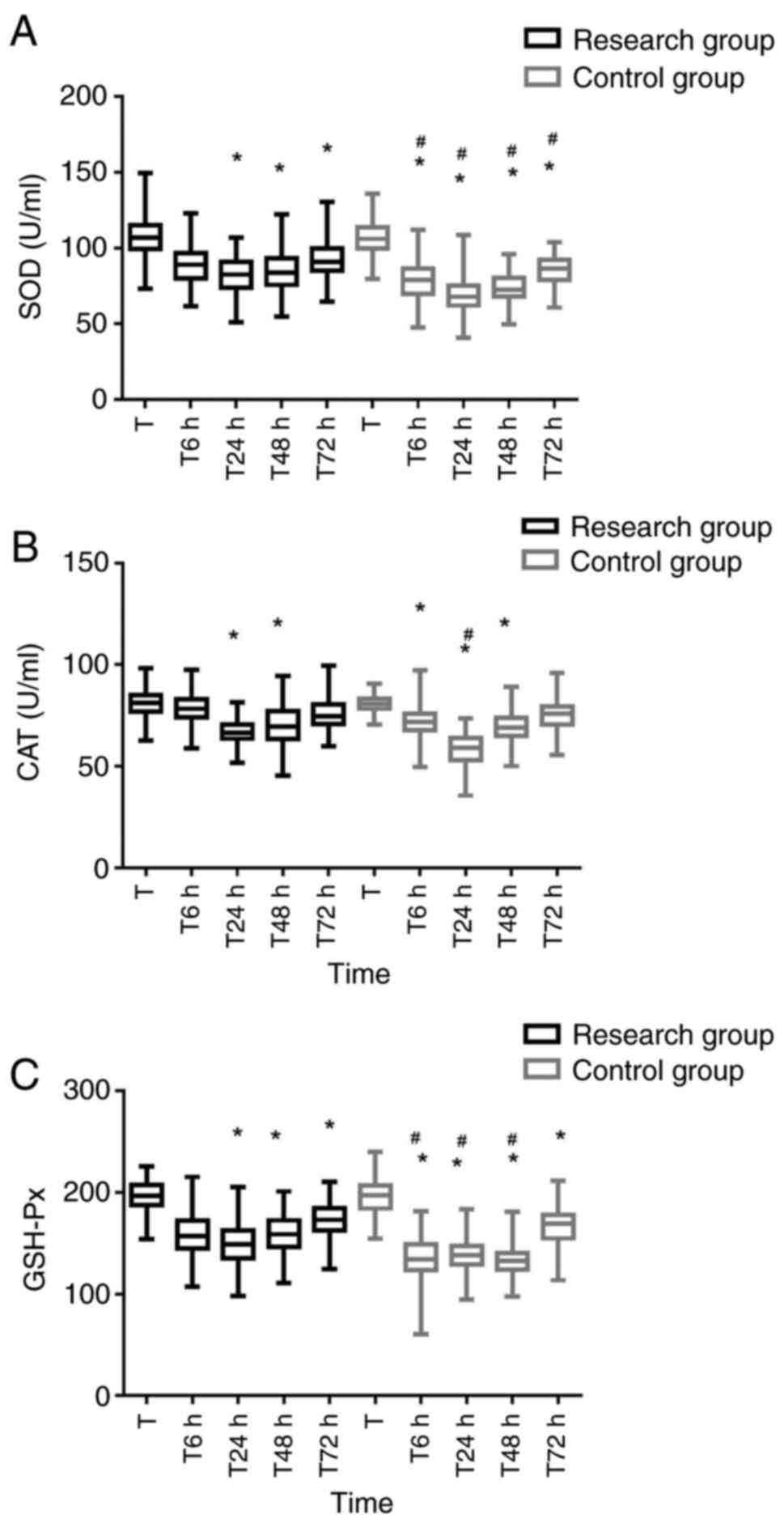|
1
|
Mahmoud M and Mason KP: Recent advances in
intravenous anesthesia and anesthetics. F1000Res 7: F1000 Faculty
Rev-470 F1000 Faculty Rev-470, 2018.
|
|
2
|
Absalom AR and Mason KP: Total intravenous
anesthesia and target controlled infusions. 2017 doi:
10.1007/978-3-319-47609-4.
|
|
3
|
Poprac P, Jomova K, Simunkova M, Kollar V,
Rhodes CJ and Valko M: Targeting free radicals in oxidative
stress-related human diseases. Trends Pharmacol Sci. 38:592–607.
2017.PubMed/NCBI View Article : Google Scholar
|
|
4
|
Athar M: Oxidative stress and experimental
carcinogenesis. Indian J Exp Biol. 40:656–667. 2002.PubMed/NCBI
|
|
5
|
Ishii T, Yasuda K, Akatsuka A, Hino O,
Hartman PS and Ishii N: A mutation in the SDHC gene of complex II
increases oxidative stress, resulting in apoptosis and
tumorigenesis. Cancer Res. 65:203–209. 2005.PubMed/NCBI
|
|
6
|
Ray G, Batra S, Shukla NK, Deo S, Raina V,
Ashok S and Husain SA: Lipid peroxidation, free radical production
and antioxidant status in breastcancer. Breast Cancer Res Treat.
59:163–170. 2000.PubMed/NCBI View Article : Google Scholar
|
|
7
|
Saygili EI, Akcay T, Konukoglu D and
Papilla C: Glutathione and glutathione-related enzymes in
colorectal cancer patients. J Toxicol Environ Health A. 66:411–415.
2003.PubMed/NCBI View Article : Google Scholar
|
|
8
|
Höhn A, Weber D, Jung T, Ott C, Hugo M,
Kochlik B, Kehm R, König J, Grune T and Castro JP: Happily (n)ever
after: Aging in the context of oxidative stress, proteostasis loss
and cellular senescence. Redox Biol. 11:482–501. 2017.PubMed/NCBI View Article : Google Scholar
|
|
9
|
Tain RW, Scotti AM, Li W, Zhou XJ and Cai
K: Imaging short-lived reactive oxygen species (ROS) with
endogenous contrast MRI. J Magn Reson Imaging. 47:222–229.
2018.PubMed/NCBI View Article : Google Scholar
|
|
10
|
Davis SM and Pennypacker KR: Targeting
antioxidant enzyme expression as a therapeutic strategy for
ischemic stroke. Neurochem Int. 107:23–32. 2017.PubMed/NCBI View Article : Google Scholar
|
|
11
|
Ahmed RG: The physiological and
biochemical effects of diabetes on the balance between oxidative
stress and antioxidant defense system. Med J Islamic World Acad
Sci. 15:31–42. 2005.
|
|
12
|
Wong A, Black SE, Yiu SYP, Au LWC, Lau
AYL, Soo YOY, Chan AYY, Leung TWH, Wong LKS, Kwok TCY, et al:
Converting MMSE to MoCA and MoCA 5-minute protocol in an
educationally heterogeneous sample with stroke or transient
ischemic attack. Int J Geriatr Psychiatry. 33:729–734.
2018.PubMed/NCBI View
Article : Google Scholar
|
|
13
|
Le May S, Ballard A, Khadra C, Gouin S,
Plint AC, Villeneuve E, Mâsse B, Tsze DS, Neto G, Drendel AL, et
al: A comparison of the psychometric properties of three pain
scales used in the pediatric emergency department: VAS, FPS-R and
CAS. Pain. 159:1508–1517. 2018.PubMed/NCBI View Article : Google Scholar
|
|
14
|
Soleimani A, Heidari N, Habibi MR, Kiabi
FH, Khademloo M, Emami Zeydi A and Sohrabi FB: Comparing
hemodynamic responses to diazepam, propofol and etomidate during
anesthesia induction in patients with left ventricular dysfunction
undergoing coronary artery bypass graft surgery: A double-blind,
randomized clinical trial. Med Arch. 71:198–203. 2017.PubMed/NCBI View Article : Google Scholar
|
|
15
|
Masjedi M, Zand F, Kazemi AP and
Hoseinipour A: Prophylactic effect of ephedrine to reduce
hemodynamic changes associated with anesthesia induction with
propofol and remifentanil. J Anaesthesiol Clin Pharmacol.
30:217–221. 2014.PubMed/NCBI View Article : Google Scholar
|
|
16
|
Cho YJ, Kim TK, Hong DM, Seo JH, Bahk JH
and Jeon Y: Effect of desflurane-remifentanil vs.
Propofol-remifentanil anesthesia on arterial oxy genation during
one-lung ventilation for thoracoscopic surgery: A prospective ran
domized trial. BMC Anesthesiol. 17(9)2017.PubMed/NCBI View Article : Google Scholar
|
|
17
|
Feng AY, Kaye AD, Kaye RJ, Belani K and
Urman RD: Novel propofol derivatives and implications for
anesthesia practice. J Anaesthesiol Clin Pharmacol. 33:9–15.
2017.PubMed/NCBI View Article : Google Scholar
|
|
18
|
Battershill AJ and Keating GM:
Remifentanil: A review of its analgesic and sedative use in the
intensive care unit. Drugs. 66:365–385. 2006.PubMed/NCBI View Article : Google Scholar
|
|
19
|
Kisilcwicz M, Rosenhcrg H and Vaillancourt
C: Remifentanil for procedural sedation; a systematic review of the
literature. Emerg Mcd J. 34:294–301. 2017.PubMed/NCBI View Article : Google Scholar
|
|
20
|
Xu R, Zhou S, Yang J, Li H, Zhang Q, Zhang
G, Xu S and Peng Q: Total intravenous anesthesia produces outcomes
superior to those with combined intravenous-inhalation anesthesia
for laparoscopic gynecological surgery at high altitude. J Int Med
Res. 45(246)2017.PubMed/NCBI View Article : Google Scholar
|
|
21
|
Visser K, Hassink EA, Bonsel GJ, Moen J
and Kalkman C: Randomized controlled trial intravenous anesthesia
with propofol versus inhalation anesthesia with isoflurane-nitrous
oxide. Anesthesiology. 95:616–626. 2001.PubMed/NCBI View Article : Google Scholar
|
|
22
|
Kim H, Choi SH, Choi YS, Lee JH, Kim NO
and Lee JR: Comparison of the antitussive effect of remifentanil
during recovery from propofol and sevoflurane anaesthesia.
Anaesthesia. 67:765–770. 2012.PubMed/NCBI View Article : Google Scholar
|
|
23
|
Scott HB, Choi SW, Wong GTC and Irwin MG:
The effect of remifentanil on propofol requirements to achieve loss
of response to command vs. loss of response to pain. Anaesthesia.
72:479–487. 2017.PubMed/NCBI View Article : Google Scholar
|
|
24
|
Park SK and Cho EJ: A randomized
controlled trial of two different interventions for the prevention
of postoperative nausea and vomiting; total intravenous anaesthesia
using propofol and remifentanil versus prophylactic palonosetron
with inhalational anaesthesia using sevofluraef-nitrous oxide. J
Int Med Res. 39:1808–1815. 2011.PubMed/NCBI View Article : Google Scholar
|
|
25
|
Mohaghegh T, Yazdi B, Norouzi A, Fateh S,
Modir H and Mohammadbeigi A: Effect of intravenous anesthesia with
propofol versus isoflurane inhalation anesthesia in postoperative
pain of inguinal herniotomy: A randomized clinical trial. Med Gas
Res. 7:86–92. 2017.PubMed/NCBI View Article : Google Scholar
|
|
26
|
Oncul S, Gaygusuz EA, Yilmaz M, Terzi H
and Balci C: Comparison of ketamine-propofol and remifentanil in
terms of hemodynamic variables and patient satisfaction during
monitored anaesthesia care. Anasthesiol Intensive Ther. 48:116–121.
2016.PubMed/NCBI View Article : Google Scholar
|
|
27
|
Yu W: Anesthesia with propofol and
sevoflurane on postoperative cognitive function of elderly patients
undergoing general thoracic surgery. Pak J Pharm Sci. 30:1107–1110.
2017.PubMed/NCBI
|
|
28
|
Elbakry AE, Sultan WE and Ibrahim E: A
comparison between inhalational (Desflurane) and total intravenous
anaesthesia (Propofol and dexmedetomidine) in improving
postoperative recovery for morbidly obese patients undergoing
laparoscopic sleeve gastrectomy: A double-blinded randomised
controlled trial. J Clin Anesth. 45:6–11. 2018.PubMed/NCBI View Article : Google Scholar
|
|
29
|
Bellanti F, Mirabella L, Mitarotonda D,
Blonda M, Tamborra R, Cinnella G, Fersini A, Ambrosi A, Dambrosio
M, Vendemiale G and Serviddio G: Propofol but not sevoflurane
prevents mitochondrial dysfunction and oxidative stress by limiting
HIF-1α activation in hepatic ischemia/reperfusion injury. Free
Radic Biol Med. 3:323–333. 2016.PubMed/NCBI View Article : Google Scholar
|

















